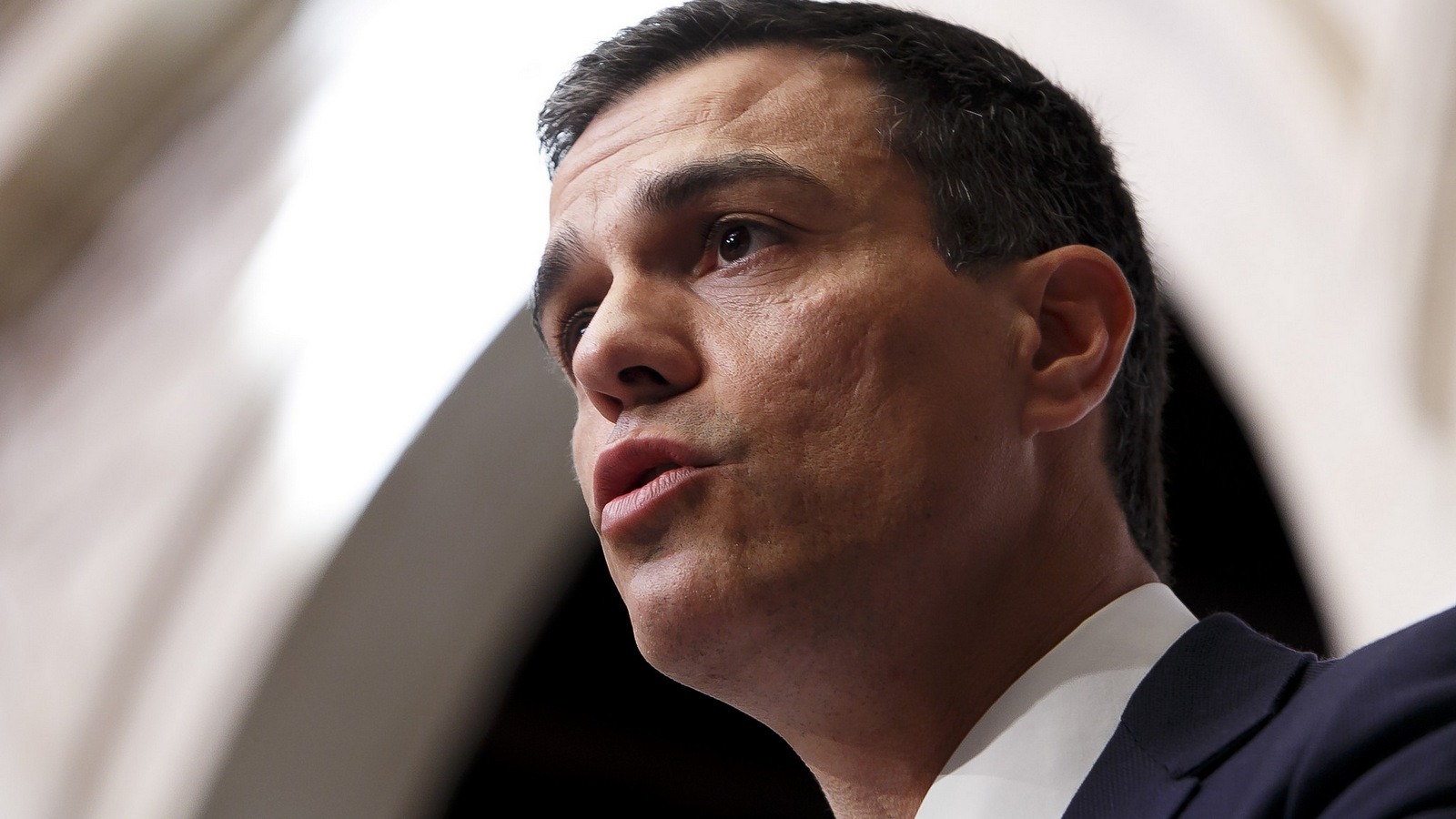
Pedro Sánchez has resigned as leader of Spain’s main opposition Socialist party (PSOE) after the party’s federal committee voted by 132 to 107 against his plan to hold a leadership election later this month. The party will be in the hands of a caretaker administration until new leader is elected.
Spain has been without a proper government since the inconclusive general election in December, in which the conservative People’s party (PP) led by Mariano Rajoy, prime minister since 2011, came first with 29 per cent of the vote and 123 seats in the 350-seat lower house of parliament, but lost an absolute majority it had enjoyed over the past four years. The centre-left PSOE won 90 seats, down from 110 seats in 2011. The rise of the anti-establishment Podemos movement, which was formed only in 2014, and the pro-market Ciudadanos party upended a stable decades-old two-party system. The two new parties tapped the frustration of young people, who have been hit-hard by years of recession and austerity measures.
According to the Spanish constitution, to be elected prime minister a candidate needs an absolute majority in parliament in the first round of voting and a simple majority in the second round. In January, Mr Rajoy refused the king’s offer to try to form a government, saying that he didn’t have enough support. In late February, Mr Sánchez tried to form a Socialist-led centre-left coalition. He signed a deal with the centrist Ciudadanos party, taking the first concrete step towards ending political deadlock. Together, the two parties had only 130 seats. Mr Sánchez needed either the PP or Podemos to back his bid to become prime minister or abstain. He couldn’t, however, bridge ideological differences between the anti-austerity Podemos and liberals from Ciudadanos. Both the PP and Podemos said that they would vote against Mr Sánchez.
In the repeat ballot in June, the PP was the only party, which increased its share of the vote, winning 137 seats. The PSOE won 85 seats. Podemos didn’t improve its election showing, despite an alliance with the United Left, failing to achieve its main goal of replacing the Socialists as the dominant political force on the Spanish left. Under Mr Sánchez’s leadership, the PSOE recorded its worst ever results in both of the general elections. The Socialists also did poorly in regional elections in the Basque Country and Galicia last month, falling behind Podemos in both ballots. In Galicia, the PP came first with 41 seats in the 75-seat regional parliament, followed by En Marea, Podemos’s affiliate. In the northern Basque Country, the Basque Nationalist party (PNV) came first with 28 seats, followed by EH Bildu, a far-left, pro-secession party.
The PSOE under Mr Sánchez refused to back a minority PP government, because the PP is tainted by a corruption scandal over cash payments from a secret slush fund backed by construction companies to the party’s senior officials. In August, Mr Rajoy struck a government deal with Ciudadanos, which had previously insisted on his resignation. That, however, was not enough to support his bid for a second full-term. In two parliamentary votes, on August 30th and September 2nd, Mr Rajoy fell short of securing a majority. That triggered the countdown to the third general election within a year.
Some of the PSOE’s regional leaders, party grandees such as Felipe González and business leaders support abstention, because the formation of an anti-Rajoy majority is improbable. They have accused Mr Sánchez of acting irresponsibly. If there is no coalition deal by the end of this month, parliament will have to be dissolved. The Socialists are likely to suffer further losses, if the unprecedented third general election within 12 months is held. Without Mr Sanchez, the party may abstain in a subsequent vote.
photo: Fundación Cajasol / CC BY-NC-ND 2.0